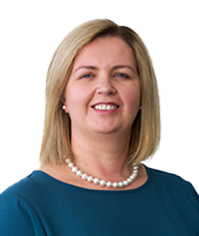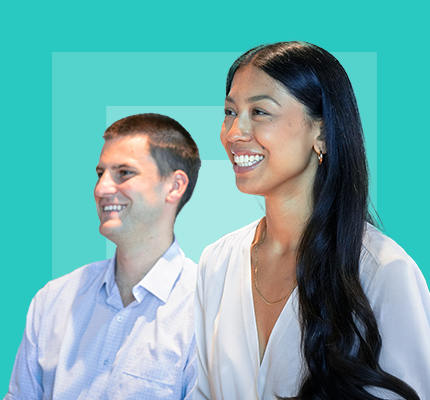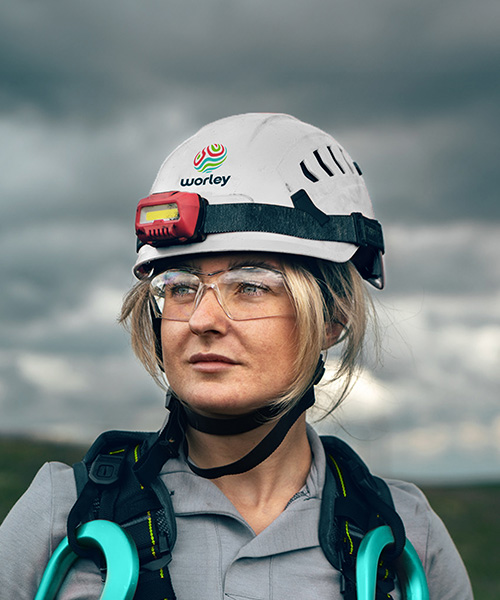
April 20, 2023 • 4 min read
Gender equality: 5 key learnings for the workplace
Gillian Cagney, President for Australia & New Zealand and member of the Champions of Change Coalition, reflects on her experience at the UN Commission on the Status of Women and how we can create a gender equal future at work.
I’ve had many roles in the engineering industry over my 21-year career. During that time, I’ve worked in teams where I’m the only woman, and others with diverse representation. And I can confidently say the more diverse the team, the greater success we have in solving our customers’ hardest challenges.
We’re striving to achieve a gender-balanced global graduate intake at Worley by 2025, but our focus on gender equality won’t stop there. And my work with the Champions of Change Coalition is part of our ambition to create a more diverse workforce.

Here’s what I learned from my time in New York last month at the UN Commission on the Status of Women, drawing on workshops, roundtables and discussions around creating a gender-equal future at work.
We need to challenge our bias around merit
We often think about merit as a list of experiences and successes someone has had in the past. Sometimes even decades ago.
We looked at the idea of embracing a broader definition of merit. My peers agreed that merit should be about what someone can achieve in the future, not just the past.
In a time when talent is difficult to find and retain, we need to give more people the chance to shine in challenging roles. Even if they don’t have the traditional ‘merit’ from years of leading teams or designing specific industrial facilities. If we just focus on past achievements, we’ll narrow our talent pool and miss out on the diverse people and perspectives we need to push the energy transition forward.
Bringing people together is just as important as subject matter expertise

We shouldn’t rule a candidate out because their subject matter expertise falls short of the previous person in a role. If they bring a positive attitude and know how to bring people together, they’re more than capable of succeeding. This is key to giving diverse and deserving candidates the right opportunities.
I didn’t get to where I am today because everything went right every time. Nor did I get here because I was the smartest person in the room. Worley values my positive experiences, and many other experiences that weren’t as good, shaping the leader I am today.
During the event, I sat next to a lady who not only ran a national airline, but had also led a construction company in the past. These are two very different industries, but she has succeeded in both without having to know everything. And part of the reason why, is her passion and energy to create something successful, backed up by her ability to bring the right people together.
A community of supportive allies is critical

If it was easy to achieve gender equality overnight, we wouldn’t need commissions like this. But the reality is it’s often difficult to change long-held perceptions and work practices. The engineering industry is not immune to this challenge.
But my peers agreed that it’s possible to make progress quickly. At Worley, we’ve found that what moves the needle, is supporting allies to stand up to the status quo when it doesn’t promote equality of opportunity.
The commission confirmed the importance of creating ally networks within an organization so both men and women are supported in their allyship. Formalizing this bond is a proven pathway to help women overcome unfair biases at work. This quickly becomes a cycle of empowerment with far-reaching impacts.
The journey to gender equality impacts everyone
While our attention needs to be on empowering fairer outcomes for women, we need to make sure we bring men along on this journey, too.
The reality is the expectations of men – both at work and at home – are changing. Striving for gender equality is about making work fairer for everyone, so we can all achieve even better things in diverse teams, and where caring roles don’t have to be gender specific.
Champions of Change is a powerful coalition to create a gender equal future

Two heads are better than one. And a group of diverse and passionate people, coming together from all over the world to push for more gender-equal outcomes, is even better.
I was proud to represent Worley and the Champions of Change Coalition. I’ll remember this experience for the people I met who were working day and night to accelerate gender equality in their companies, industries, and regions.
I’ll also remember it as a powerful reminder that everyone belongs somewhere. As I packed my bag in my hotel room in New York, I opened my window and heard a band playing the Irish National Anthem for St. Patricks Day. Although I live in Australia and am proud of my citizenship, I’ll always be a proud Irish person and my thoughts went straight to home.
Everyone should feel a similar sense of belonging at work. And that’s exactly what we’re striving to create at Worley.



